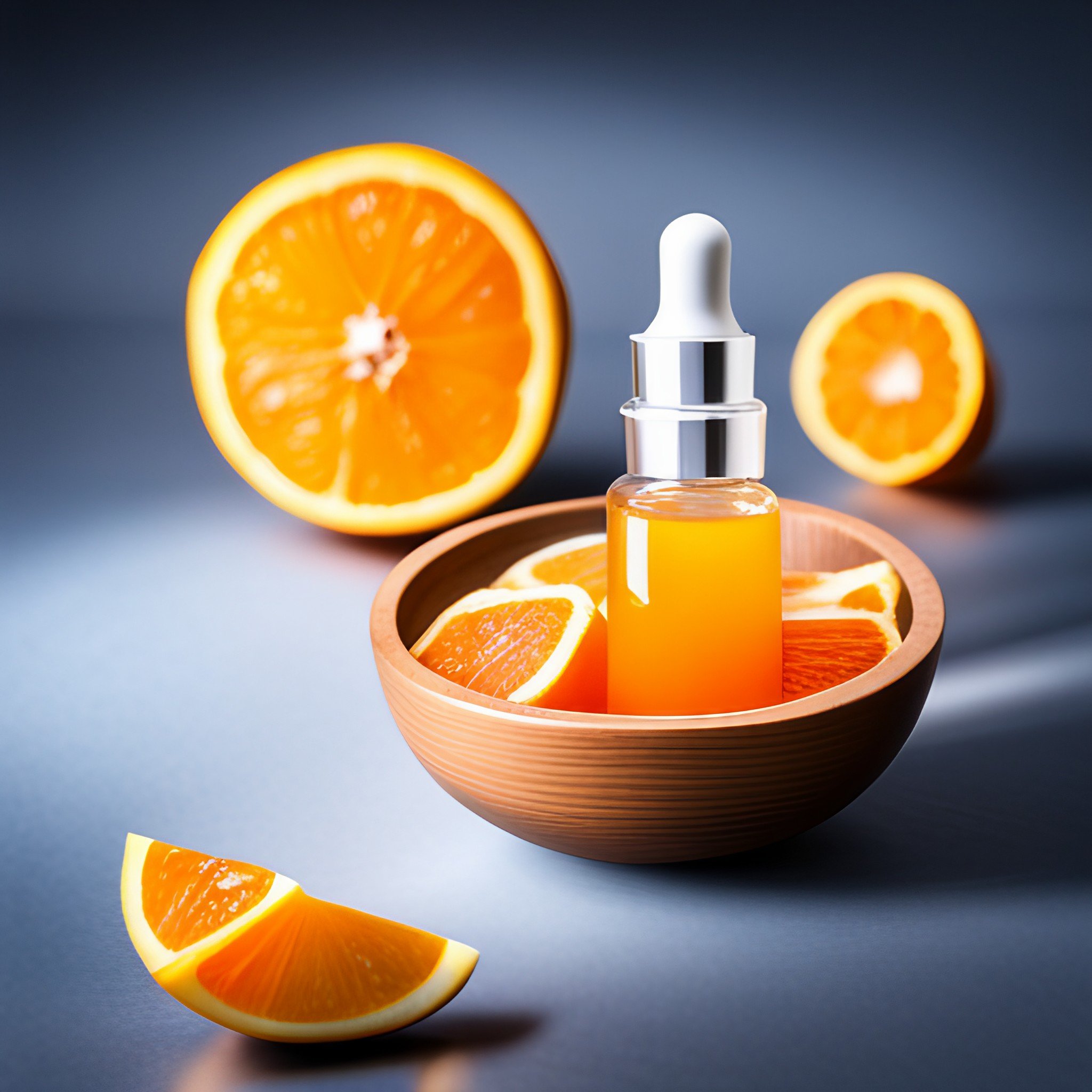Discover the Power of Vitamin C Serums: Unveiling Types, Benefits, and How They Transform Your Skin
Unlock the secret to radiant, youthful skin with Vitamin C. These serums are the latest trend in skincare, renowned for their ability to brighten, firm, and even out the complexion. But not all Vitamin C serums are created equal. Join us as we delve into the world of Vitamin C serums, exploring the different types, their unique advantages, and how they revolutionize skin health.
Types of Vitamin C Serums:
L-ascorbic acid Vitamin C serums: Dive deep into your skin's cellular level with this potent form of Vitamin C. Experience the power of fighting free radicals, ramping up collagen production, and transforming skin texture. Watch as fine lines and wrinkles visibly diminish and your skin is refined to perfection.
Ascorbic Acid 2-Glucoside (AA2G): Seeking stability, gentleness, and effectiveness? Look no further than AA2G. This superstar serum tackles dark spots, dullness, and uneven skin tone. By stimulating fibroblast cells, it leaves your skin firmer and more supple than ever.
Magnesium Ascorbyl Phosphate (MAP): Restore your skin's natural defenses with this water-soluble derivative of Vitamin C. Say goodbye to acne scars, uneven skin tone, and hello to a brighter, more radiant complexion. Your skin barrier will be strengthened, and your confidence restored.
Tetrahexyldecyl Ascorbate (THD): It's time to fight back against free radicals and welcome a more youthful appearance. THD, an oil-soluble form of Vitamin C, is your secret weapon against fine lines, wrinkles, and loss of elasticity. Embrace firmer, healthier-looking skin with this powerful serum.
Considerations for Choosing a Vitamin C Serum:
Concentration of Vitamin C: The effectiveness of a Vitamin C serum depends on its concentration. Experts generally recommend a serum with at least 10% Vitamin C, although some may contain up to 20%. However, keep in mind that higher concentrations do not guarantee better results. Excessive Vitamin C concentration can lead to skin irritation and sensitivity.
pH Level: The pH level of a Vitamin C serum significantly affects its efficacy. The ideal pH range for a Vitamin C serum is between 3-4, ensuring stability and effective skin penetration. Serums with higher pH levels may not yield desired results and may even cause skin irritation.
Additional Ingredients in Vitamin C Serums:
One common ingredient found in vitamin C serums is hyaluronic acid. This natural substance helps to hydrate the skin by holding onto moisture, making it an ideal complement to the skin-brightening effects of vitamin C. Hyaluronic acid also helps to plump up the skin, reducing the appearance of fine lines and wrinkles.
Another beneficial ingredient often found in vitamin C serums is ferulic acid. This antioxidant works in conjunction with vitamin C to boost its effectiveness and protect the skin from free radicals. Free radicals are unstable molecules that can cause damage to the skin, leading to premature aging and other skin issues.
Vitamin E is another common ingredient found in vitamin C serums. Like ferulic acid, it also has antioxidant properties that work together with vitamin C to protect the skin from environmental stressors. Vitamin E can also help to soothe and heal the skin, making it a great addition to vitamin C serums for those with sensitive or inflamed skin.
While there are many beneficial ingredients found in vitamin C serums, it's important to be mindful of harmful ones as well. Some serums may contain sulfates, parabens, and phthalates, which can be harsh on the skin and potentially cause irritation or other negative effects. It's best to opt for serums that are free from these harmful chemicals, especially if you have sensitive skin.
Benefits and How Vitamin C Serums Work on Skin:
As discussed, Vitamin C serum is a powerful component in any skincare routine. But what exactly is Vitamin C and how does it work to transform your skin?
Vitamin C, also known as L-ascorbic acid, is an essential nutrient that our bodies need for proper functioning. It acts as an antioxidant, helping to protect cells from damage caused by free radicals – unstable molecules that can lead to premature aging and diseases. In addition to its internal benefits, Vitamin C has also been proven to have numerous skincare benefits when applied topically.
When used in serum form, Vitamin C is able to penetrate the skin's surface and reach deeper layers, specifically targeting fibroblast cells. These cells are responsible for producing collagen and elastin – essential proteins that give skin its firmness, elasticity, and overall youthful appearance.
By awakening fibroblast cells, Vitamin C serum stimulates the production of collagen and elastin. This results in improved skin elasticity, increased firmness, and a visible reduction in wrinkles and fine lines. With consistent use, you can expect to see a noticeable difference in the texture and overall appearance of your skin.
But that's not all – Vitamin C also works as a powerful antioxidant when applied topically. It neutralizes free radicals that can cause damage to our skin cells, thus protecting our skin from further harm and preventing premature aging.
So, whether you’re looking to improve your skin’s texture and reduce signs of aging, or simply want to protect your skin from environmental stressors, incorporating Vitamin C serum into your skincare routine is a must. With its ability to penetrate the skin and target fibroblast cells, this powerhouse ingredient is sure to transform your skin for a healthier, more youthful-looking complexion.
In conclusion, Vitamin C serums are the game-changer your skincare routine needs. Experience the multiple advantages they bring to your overall skin health and appearance. By selecting the right Vitamin C serum tailored to your unique skin type and concerns, you'll unlock the path to optimal results.



